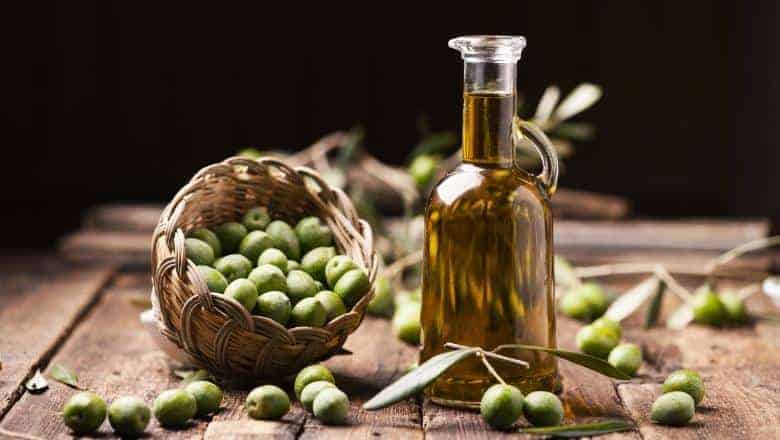Is Making Your Own Olive Oil Worth It?
Olive Knowledge is a part of Amazon Associates. As an Amazon Associate, we earn from qualifying purchases. Read our Affiliate Disclosure to learn more.
With olive oil prices going through the roof, it may now be the best time to think about making olive oil for your needs. In this post, I’ll share my thoughts on this topic and explain why I think that it’s worth making your own olive oil, even if you only grow a few trees.
Key Takeaways:
- Making olive oil for your needs is worth it.
- You need to grow anywhere between five to ten olive trees to have enough olive oil for an average USA family.
- The biggest benefit of making your own olive oil is that you’ll know it’s a high-quality olive oil made from your olives, which you can grow 100% organically.
Making Your Own Olive Oil Is Worth It

Here’s the catch: if you grow enough olive trees, then it’s worth it to make your own olive oil. Many people have just one or two trees for decoration purposes, but in most cases, having one or two trees won’t be enough to produce your olive oil.
I have recently written an article about how many olive trees are enough to make olive oil for your needs. In that article, I told you that anywhere between 5-10 trees are needed to make enough olive oil for your needs.
Even though two trees are enough in some situations, I still wouldn’t risk that since every year gives you a different yield. Having 5 to 10 olive trees, will 100% be enough to make enough olive oil for your family.
Related: How Much Do Olive Trees Cost
If you don’t have olive trees yet but plan on growing them, check the Olive Trees category on my blog, where I share plenty of valuable tips for growing them.
Is It Hard To Grow Olives and Make Olive Oil?
I wouldn’t say that making your olive oil is a tough job, but it requires plenty of work. However, maintaining 5-10 trees shouldn’t be a problem for anyone since it can easily be a weekend hobby for you and your family.
In order to make olive oil, you need to grow and maintain olive trees properly so they give you plenty of fruits on every harvest.
When it comes to making olive oil, it’s not hard, especially if you decide to make it in some specialized olive oil mill facilities. You just give them olives, and they’ll make olive oil for you (usually for a small price).
There’s also an option to make olive oil at home, but I wouldn’t do that for more significant amounts of olives unless you have giant oil presses that can process all the olives you have within one day.
Benefits Of Making Your Olive Oil

In Croatia, there’s a saying, “Domaće je domaće! “, which means “Homemade is homemade! “. With that, people want to emphasize the quality of homemade products, as they are always much better than commercial ones. And really, there are plenty of benefits of homemade products. The same thing is true with olive oil, so make sure to check the benefits you’ll get when making your own olive oil.
1. Saving Money
First things first, you’ll save a lot of money, especially if you and your family consume a lot of olive oil yearly. 500ml of olive oil usually costs anywhere between $7 and $30 in the USA – with high-quality oils having prices closer to $30. That’s extremely costly.
When making your own olive oil, you could save most of that money and still produce olive oil that’s even better than some premium olive oils out there.
Even better, you’ll probably have some extra olive oil to sell to your friends and cousins, so the final price of your olive oil will be even lower.
2. Olive Origin and Supplementation
When making your olive oil, you’ll be 100% sure that all the olives are from your garden, and you’ll know exactly which fertilizers you used for treating olive trees, etc.
You also get to choose which olive species you’ll grow, so you don’t get the oil mixed from various questionable-quality olive species.
Most large olive orchards use plenty of products to stimulate olive growth in order to increase profits forcibly. When you grow your own olives, you’ll probably want them to be as natural as possible, increasing the oil’s health benefits.
3. Olive Oil Quality
No doubt, the oil you get from your olives will be extremely high-quality (if you do everything properly), and you won’t mix it with 2nd or even 3rd press to get a few gallons of oil more.
Large companies often mix low-quality olive oils with high-quality ones, increasing the total amount of olive oil and selling it as “premium “olive oil. I don’t say that every manufacturer does that, but many of them do, especially those that sell you “high-quality premium “olive oil for cheap.
4. Future Business Potential
Many olive growers only started with a few trees and then got intrigued in that kind of business. Growing a few trees won’t cost you a lot of money, and there’s a potential to expand it to a large business one day if you love the process.
You never know what the future brings to you. Maybe one day you decide to go full-time and become a large olive grower that sells not only olive oil but many other products made from olive fruits.
Cons Of Making Your Olive Oil
As always, it’s not all sunshine and rainbows. There are also some cons to making your olive oil. Since I’m trying to be completely objective when writing articles, I have to speak about them. Of course, there are more benefits than cons, but still, it’s worth mentioning them to know what you’re getting into.
1. You’ll Have To Deal With Storage
When you go to the store and buy just enough olive oil for your family’s needs in the next 1-2 months, you don’t care about the storage and everything. If you decide to make your olive oil, you’ll have to deal with it since olive oil should be stored appropriately in order to keep it fresh as long as possible.
You can’t just go and buy some PVC containers and store olive oil in them. It’s a cheap solution but will destroy all the nutrients in olive oil.
The best option so far is to store olive oil in inox containers, which keeps the olive oil protected from external elements such as oxygen, which causes olive oil to become rancid. For further info, check my guide on Best Types of Containers For Storing Olive Oil.
2. You’ll Have To Invest Some Money Upfront
Even though you’ll save a lot of money in the end, you will have to invest some money upfront. It’ll be for growing and maintaining olive trees (watering, fertilizing, harvesting, etc.), buying containers, paying oil mills to process olives, etc.
Most of these costs aren’t extremely high, except the inox containers, which often cost more than $300. However, you don’t buy them each year, so it’s a worthy investment.
2 Ways To Make Your Own Olive Oil
I won’t go long here since this isn’t a how-to make olive oil guide, but I want to discuss the two ways to make your olive oil:
- Make olive oil at home (for smaller amounts only)
- Pay the oil mills to make olive oil for you (best choice)
Making your olive oil at home is a fantastic experience, but if you don’t have the right equipment, such as oil presses (which can cost a lot), and plenty of olive fruits, it’s not worth it. Making olive oil at home is suitable for people who want to make olive oil from 10-20 kg of olives.
In my opinion, the best choice is to pay oil mill facilities to make olive oil for you. They usually charge anywhere between $0.30 to $0.45 per kg of olives, and they’ll always have modern equipment that can get most oil out of the olives.
Frequently Asked Questions
Making your own olive oil is much cheaper than buying it in markets. It requires some money to invest upfront, but in the end, it’s at least two times more affordable.
If you want to make olive oil at home, it can be a tough job since it’ll require a lot of time and dedication, especially if you don’t have an oil press, and you’ll do everything in your kitchen. It’s great for small amounts of olives, but for larger yields, you should go to oil mill facilities (in my opinion).
Selling olive oil is very profitable, and there’s always a great demand for it. So, ROI (return on investment) is excellent, especially if you focus on making high-quality olive oil, such as extra virgin olive oil (EVOO).
Yes, you can make olive oil without a press. You’ll need a blender, colander, olive pitter, cheesecloth, or linen cloth, and a transparent glass container. Here’s a great how-to guide.
You can expect anywhere between 1 to 14 liters of olive oil per olive tree you grow. Check my article How Many Liters of Olive Oil Can An Olive Tree Produce for a detailed and more thorough answer.
Conclusion
No doubt, making your own olive oil is worth it. Olive trees are a beautiful and great addon to any garden, and they don’t require you to work too much on them. Just make sure that you live in the right area where olive trees can grow.
If I encourage only one of you to start producing your own olive oil with this article, I will be overjoyed. I think it’s great and that more people should be into it, as with many other agricultural crops.
